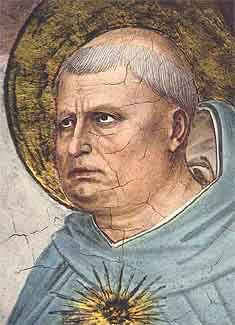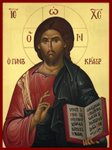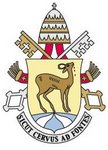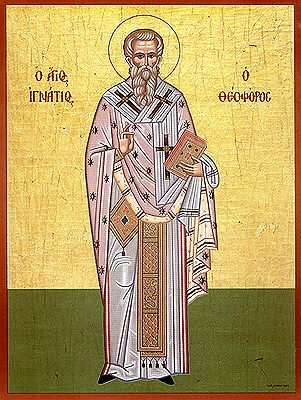
Found
this interview with Antony Flew, via
The Insight Scoop Blog. Mr. Flew was a life long atheist thinker who now has come to belief in God. Not the Christian God, mind you. He considers himself a Deist. In his view of God, God created the world and let it go to its own devices. Like a the classic watchmaker analogy. God made the world, wound it up, and then let it go.
Mr. Flew cites two decisive points for his "conversion". Interesting that both points fold into the classic argument for God from design:
There were two factors in particular that were decisive. One was my growing empathy with the insight of Einstein and other noted scientists that there had to be an Intelligence behind the integrated complexity of the physical Universe. The second was my own insight that the integrated complexity of life itself – which is far more complex than the physical Universe – can only be explained in terms of an Intelligent Source. I believe that the origin of life and reproduction simply cannot be explained from a biological standpoint despite numerous efforts to do so. With every passing year, the more that was discovered about the richness and inherent intelligence of life, the less it seemed likely that a chemical soup could magically generate the genetic code. The difference between life and non-life, it became apparent to me, was ontological and not chemical. (emphasis mine)
 Thus, Mr. Flew finally recognizes the validity of one of the arguments for the existence of God that St. Thomas used in the Summa:
Thus, Mr. Flew finally recognizes the validity of one of the arguments for the existence of God that St. Thomas used in the Summa:
The fifth way is taken from the governance of the world. We see that things which lack intelligence, such as natural bodies, act for an end, and this is evident from their acting always, or nearly always, in the same way, so as to obtain the best result. Hence it is plain that not fortuitously, but designedly, do they achieve their end. Now whatever lacks intelligence cannot move towards an end, unless it be directed by some being endowed with knowledge and intelligence; as the arrow is shot to its mark by the archer. Therefore some intelligent being exists by whom all natural things are directed to their end; and this being we call God. (STh I.2.3)
The last line of the quote from Mr. Flew I found interesting. He is saying, I believe, that he recognized that the difference between living things and non-living things wasn't simply a different chemical composition or arrangement of atoms, but the difference lies in that the living thing has something about its being that causes it to be alive. In other words, a soul. In Aristotelian terms, Mr. Flew recognized that a being (especially one that is alive - it is easiest to see there) has a unity about the thing and something else that makes it a certain thing as different from just a pile of parts. This principle of unity of a thing that individuates it is called the form of the thing. Thus, humans aren't merely an arrangement of molecules but a being standing in itself in distinction of other things. Our soul is our form. It is the principle that individuates matter into an individual thing of a certain sort. To accept that beings are composites of matter and form is a giant leap to accepting God because then there are logical consequences that make God necessary. Aristotle covered these arguments in the Physics and Metaphysics.
The interview continues with the interviewer asking him about the scientific data that supports the existence of God (which Mr. Flew claims convinced him). He then comments to the question of atheists being behind the curve on scientific evidence supporting God's existence:
Yes indeed. I would add that Dawkins is selective to the point of dishonesty when he cites the views of scientists on the philosophical implications of the scientific data.
Two noted philosophers, one an agnostic (Anthony Kenny) and the other an atheist (Nagel), recently pointed out that Dawkins has failed to address three major issues that ground the rational case for God. As it happens, these are the very same issues that had driven me to accept the existence of a God: the laws of nature, life with its teleological organization and the existence of the Universe. (emphasis mine)
Once again, Mr. Flew cites issues, that drove him to accept the existence of God, that are the basis for the arguments asserting God's existence from the time of Aristotle on. St. Thomas takes them up in the question from the Summa that is linked to above. The "laws of nature" and "life with its teleological (ordered to the end) organization" are answered in the argument from the Summa cited above (the so-called 5th way). The "existence of the Universe" is answered in the 2nd way where St. Thomas proves the existence of the First Efficient Cause. The First Efficient Cause argument basically states that there must be a cause of all existence that is in itself uncaused. It is because a thing cannot cause itself. Thus, it must be caused by another. This cannot go onto infinity in ordered causes, however, or there would never be the effect because there would not be a first cause. God is this First Efficient Cause of all being Who is not caused.
He wraps up by stating :
I accept the God of Aristotle who shares all the attributes you cite. Like Lewis I believe that God is a person but not the sort of person with whom you can have a talk. It is the ultimate being, the Creator of the Universe.
As Jesus said to the lawyer, "You are not far from the kingdom of God." (Mk 12:34); he would say the same to Mr. Flew. The God of Aristotle is the God of St. Thomas. Once Mr. Flew discovers how St. Thomas corrects and expands (via Divine Revelation) Aristotle's understanding he will be ready. Furthermore, if he carefully reflects on what it means to be person, he will realize that a essential aspect of a person to transcend himself to another. That in the very what it means to be person is to be self communicating, the highest form of that communication being love. When he realizes this, Mr. Flew will know that God as Person will be essentially self communicating, and since God's essence is his existence, God's very being will be to self communicate. We see this in the complete self communication between the three Persons of the Blessed Trinity. Thus, we can have that talk with God, Mr. Flew. He came in human form so he might speak to us face-to-face in the Person of Jesus Christ.













